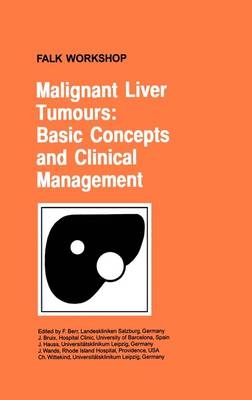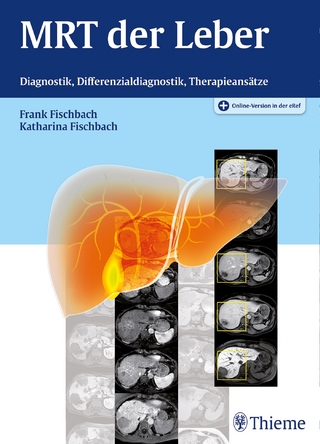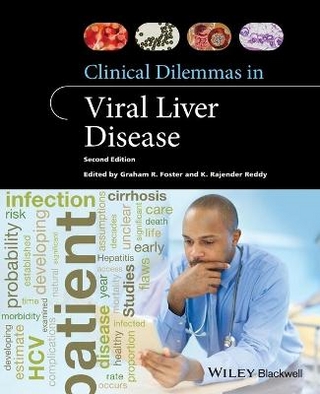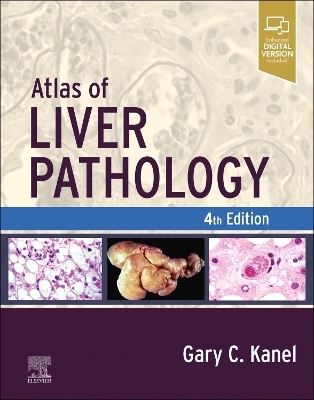
Malignant Liver Tumours: Basic Concepts and Clinical Management
Springer (Verlag)
978-0-7923-8779-4 (ISBN)
- Titel ist leider vergriffen;
keine Neuauflage - Artikel merken
The current concepts on risk profiling, surveillance of risk groups and therapeutic strategies are evidence-based for HCC and less detailed for CC. Surveillance of risk groups improves detection of liver tumours in curable stages. Best strategies for curative treatment of HCC use neoadjuvant antitumour therapies before liver transplantation and a role is emerging for living donor-related liver transplantation. New palliative therapies for HCC are in the experimental stage with biological response modifiers, including angiogenesis inhibitors, and entering phase II clinical trials with the alpha-fetoprotein derived vaccines.
List of Principal Authors. Preface.
Section I: Molecular Oncogenesis of Malignant Liver Tumours. 1. Molecular pathogenesis of hepatocellular carcinoma; D.F. Calvisi, S.S. Thorgiersson. 2. Altered signal transduction in human hepatocellular carcinoma; J.R. Wands. 3. Interactions between cell proliferation and apoptosis in the development and progression of liver tumours; N. Fausto, M.E. Vail, R.H. Pierce, C.C. Franlin, J. Campbell. 4. Invasive and metastatic growth of hepatocellular carcinoma; A. Tannapfel.
Section II: Induction of hepatocellular carcinogenesis. 5. Hepatitis B virus-induced carcinoma; M.-A. Buendia. 6. Hepatitis C virus-induced carcinogenesis; M.A. Gonzalez-Carmona, W.H. Caselmann. 7. Role of progenitor cells in carcinogenesis? T. Roskans, L. Libbrecht. 8. Dysplasia carcinoma sequence? P.P. Anthony.
Section III: Clinical Management of Hepatocellular Carcinoma. 9. Risk groups and preventative strategies; M. Colombo. 10. Hepatocellular carcinoma: pathological indicators of prognosis; G.Y. Lauwers. 11. Clinical staging and indicators of prognosis in patients with hepatocellular carcinoma; J. Bruix. 12. Non-surgical intervention therapies; H.-P. Allgaier, D. Galandi, H.E. Blum.
Section IV: Experimental Approaches to New Therapies for Hepatocellular Carcinoma. 13. Immunotherapeutic strategies against hepatocellular carcinoma; M. Geissler, L. Mohr, H. Blum. 14. Gene therapeutic approaches; S. Kubicka. 15. Combination therapy of hepatocellular carcinoma with biological response modifiers; D. Schuppan, C. Herold, M. Ganslmayer, M. Ocker, E.G. Hahn. 16. Graft versus tumour: suppression of hepatocellular carcinoma growth via induction of oral immune-regulation towards tumour-associated antigens; Y. Ilan.
Section V: Cholangiocarcinoma. 17. Aetiopathogenesis, morpgological features and molecular pathology of cholangiocarcinoma; J. Albores-Saavedra. 18. Cholangiocarcinoma: risk groups and diagnostic strategies; G.J. Gores. 19. Non-surgical palliative treatment for cholangiocarcinoma; F. Berr, K. Caca, J. Mössner, M.-A. E.J. Ortner.
Section VI: Surgical Treatment and Prevention of Recurrence for Hepatocellular Carcinoma. 20. Prevention of recurrence for hepatocellular carcinoma after curative surgery; J.M. Llovet. 21. Surgical treatment for hepatocellular carcinoma: the role of living donor-related liver transplantation; C. Valentín-Gamazo, M. Malagó, C.E. Broelsch.
Index.
| Erscheint lt. Verlag | 30.11.2002 |
|---|---|
| Reihe/Serie | Falk Symposium ; 127A |
| Zusatzinfo | 224 p. |
| Verlagsort | Dordrecht |
| Sprache | englisch |
| Gewicht | 485 g |
| Themenwelt | Medizinische Fachgebiete ► Innere Medizin ► Hepatologie |
| Medizin / Pharmazie ► Medizinische Fachgebiete ► Onkologie | |
| ISBN-10 | 0-7923-8779-1 / 0792387791 |
| ISBN-13 | 978-0-7923-8779-4 / 9780792387794 |
| Zustand | Neuware |
| Haben Sie eine Frage zum Produkt? |
aus dem Bereich


